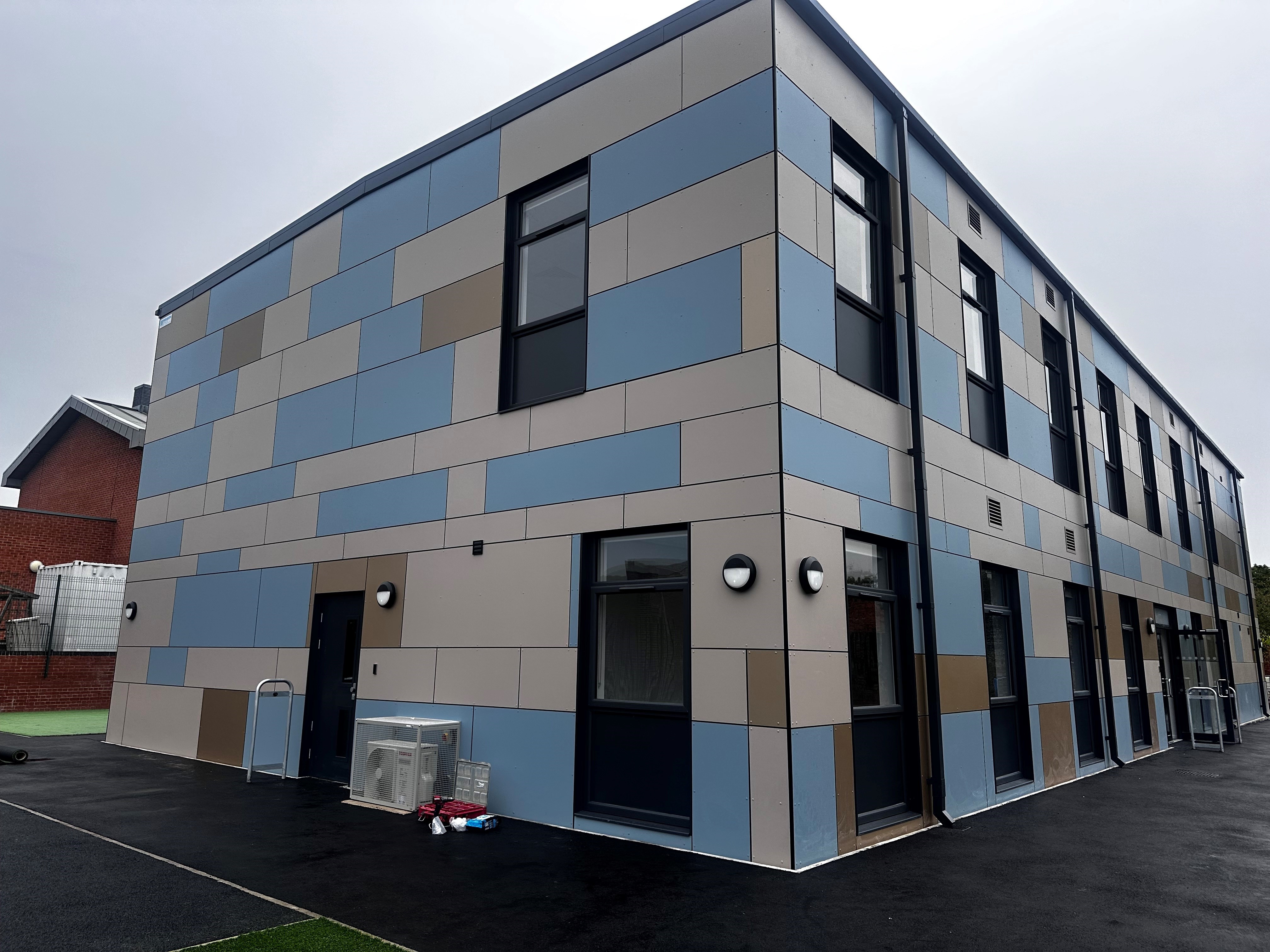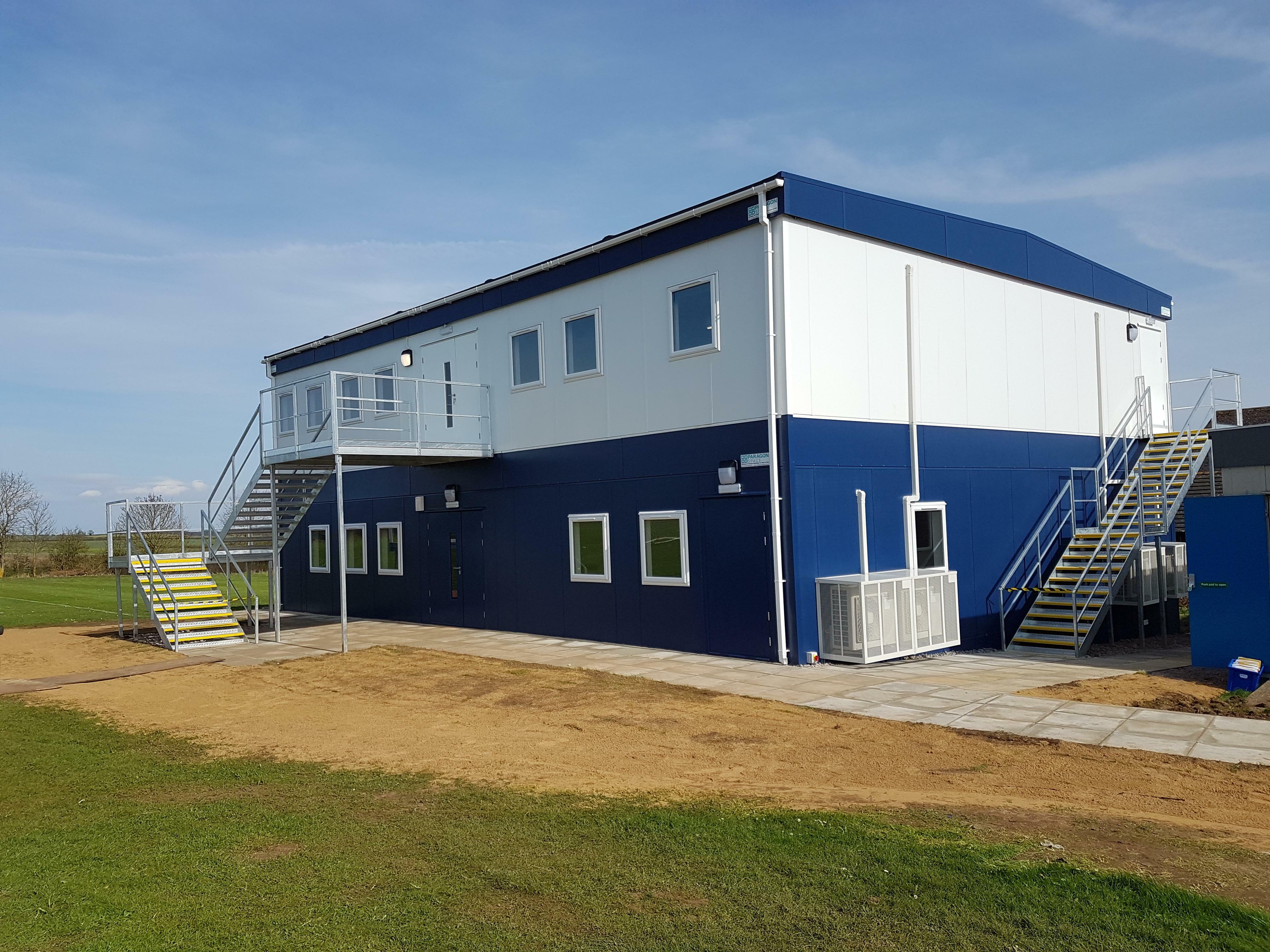If you're looking to cut waste, lower emissions, and build more responsibly, modular construction is a great place to start. It gives you more control over materials, time and energy use — all of which help you meet your sustainability targets.
At Paragon Space, we see the impact every day. Modular buildings don’t just save time. They reduce site disruption and help you make better use of resources.
Here's how modular construction can support your environmental goals, one step at a time.
Less Waste and Better Planning
Traditional building methods often create high levels of waste. Materials are cut on site, weather can cause damage, and off-cuts often end up in the skip. In modular construction, most of the work happens in a controlled factory setting. This means better material planning, less damage and fewer offcuts.
When you build in a factory, you can measure and cut materials more accurately. This also means fewer mistakes. You can plan better, ordering only what you need and avoiding overstocking.
Modular methods also make it easier to use recycled or sustainable materials. Timber frames, eco-friendly insulation and low-impact finishes can all be built into the design from the start. Anything not used in one build can often go straight into the next. Over time, this cuts down the amount of waste going to landfills.
Lower Carbon Emissions
Working on-site takes time. It also involves more deliveries, longer equipment use, and more travel for workers and suppliers. Over the course of a traditional build, these activities can add up to a significant amount of carbon emissions.
Because modular buildings are made off-site in a controlled environment, the time spent on location is much shorter. Most of the construction work is already done before the unit arrives. This means fewer vehicle movements, lower fuel use and less disruption to the surrounding area. The site stays quieter, cleaner and more efficient.
Fewer on-site tasks also mean less reliance on generators, temporary heating or lighting, which can be energy-hungry. Instead, modular buildings are installed quickly and can be connected to permanent services with minimal fuss.

Reuse and Relocation
One of the biggest benefits of modular buildings is how easy they are to move. Unlike traditional buildings, which are fixed to one site, modular units can be taken apart, transported and reassembled elsewhere with minimal disruption. This makes them ideal for projects with changing needs or short-term site use.
If your project finishes early or your plans shift, the building doesn’t go to waste. You can relocate it to another site, hand it over to another department, or repurpose it for a different use. Offices can become classrooms. Canteens can become staff rooms. The structure stays useful, even if the job changes.
This flexible approach reduces the need for new construction and avoids the environmental impact that comes with demolition. It cuts down on material waste, limits energy use, and keeps good-quality buildings in use for longer.
Safer, Cleaner Sites
Because most of the work happens off-site, modular construction creates safer, quieter and cleaner environments during the build phase. This reduces the number of trades on site at any one time and limits the use of heavy machinery, cutting down on noise, dust and vibration.
With fewer deliveries and less equipment moving in and out, there's also a lower risk of accidents or disruption to nearby roads and walkways. This makes the site safer for workers and passers-by. It also means that your team can work in a more controlled, less stressful environment.
Cleanliness is another key benefit. On a traditional build, materials are exposed to the weather, and the site itself can become muddy or difficult to manage. Modular construction avoids this. Buildings arrive weatherproof and ready to install, which helps keep the area tidy and reduces the chance of delays caused by poor conditions.
Supports Green Building Standards
Modular construction makes it easier to meet environmental standards. Whether you’re working towards BREEAM, Passivhaus or your own in-house targets, modular systems help you design with these goals in mind from day one.
You can also monitor performance more easily. Energy use, air quality and insulation levels can all be measured and adjusted in a modular setting before the unit even reaches the site.

Built to Last
Modular buildings may go up quickly, but they’re designed with long-term use in mind. With proper care and regular maintenance, they can stay in use for decades without needing major repairs or replacements. This extended lifespan means fewer rebuilds, less use of raw materials, and lower energy consumption over time.
The controlled factory setting also helps with quality. Each part of the building is made to consistent standards, reducing the risk of defects or weak points. As a result, modular units often match or exceed the performance of traditional builds in terms of durability and weather resistance.
Even when a building reaches the end of its first use, it doesn't have to be discarded. Walls can be reconfigured. Floors and fittings can be refreshed. Whole units can be relocated and given a new purpose.
Modular Buildings that UK Businesses Trust
If your goal is to build in a way that’s better for people and the planet, modular construction from Paragon Space is a practical, proven approach. It cuts waste, lowers emissions and gives you more control over how your buildings are made and used.
We help companies and public sector clients across the UK use modular buildings to meet their business goals, including their sustainability targets.
Want to know more? Get in touch with our team or explore our modular building options today.